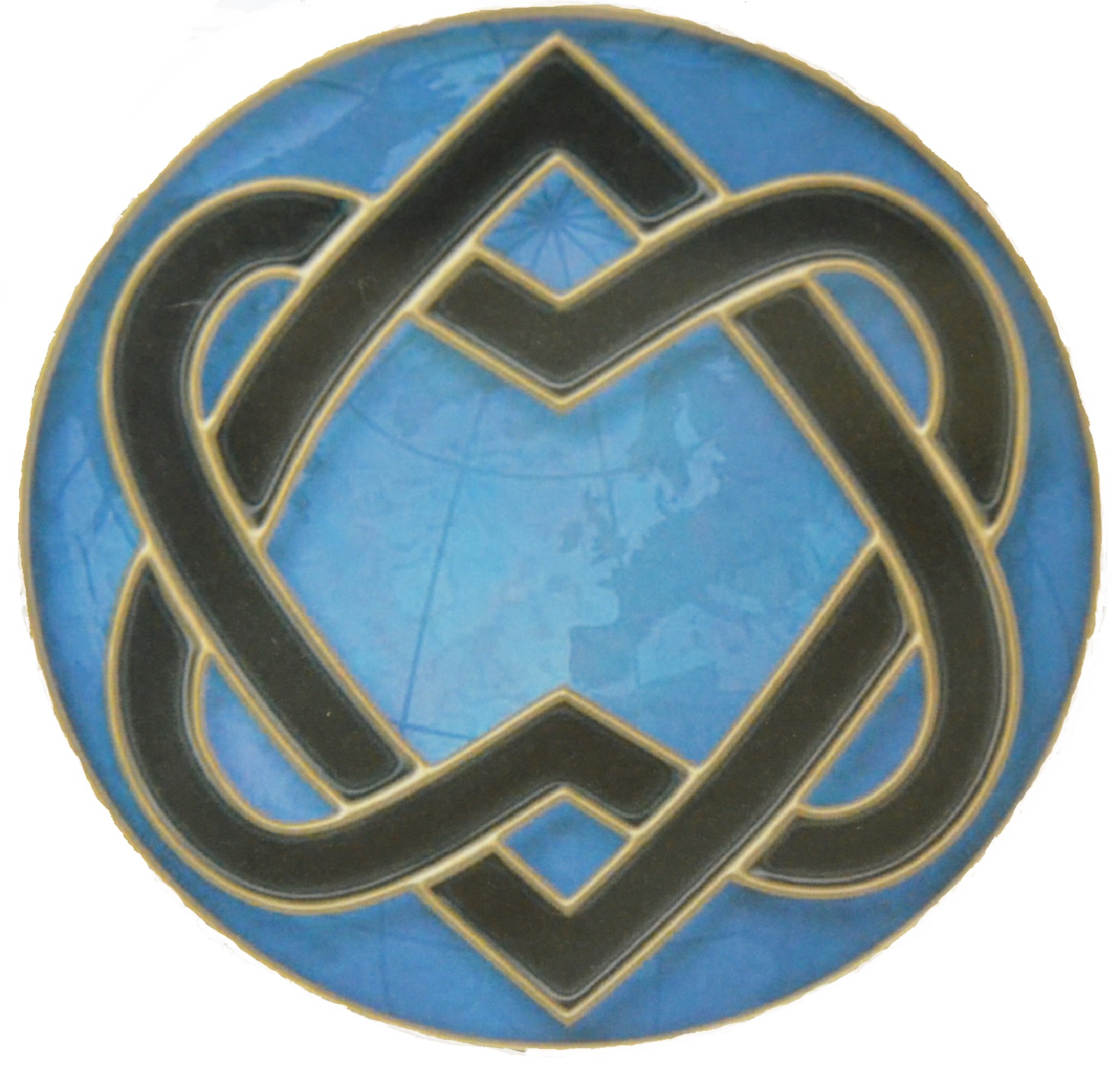Episodes

Sunday Dec 20, 2020
The Dreams of Genesis and Our Dreams: Our Alignment with the God World
Sunday Dec 20, 2020
Sunday Dec 20, 2020
The saga of Yosef is about dreaming beginning to end, with the parashah of Miketz as itself operating according to dream logic. Are dreams special in the Torah, unlike ours, as some kind of prophecy? Or is much of Genesis calling our attention to the God world all around us, the one we only know through "knowledge by inacquaintance" (Abraham Joshua Heschel)? Is it telling us that our conventional "common denominator" way of processing and understanding the world is flawed, limited, one of not knowing God is in this place, that other souls are in this place? How do we get there? And how could we possibly when we deprive our teenagers, our children, ourselves of sufficient sleep to even align ourselves with the world our dreams teach us to enter in Torah consciousness?

Sunday Dec 06, 2020
Sunday Dec 06, 2020
I relate Jacob's dream of the stairway to heaven and his dream of God-wrestling to the therapeutic uses of psilocybin to treat PTSD, depression, addiction, and end-of-life fear.

Monday Nov 30, 2020
Monday Nov 30, 2020
The stories of Jacob being defrauded by Lavan are taken to be the plot of the famous period of Jacob working for Lavan for 20 years before fleeing in the middle of the night. In this teaching, I show that this is a misunderstanding. Jacob has worked for 20 years for Lavan without being paid, but only 6 of those years are for Jacob and his arrangements with Lavan! The first 7 years are to earn money that goes directly to Leah, and the next 7 years are for the money that goes to Rachel! The story is about THEIR being defrauded! Why does everyone miss this? The reason is that we misunderstand Jewish marriage: when we read a Ketubah, when we read the literal meanings of the Jewish ceremony, we presume this is an acquisition of the woman like she's property being transferred from father to husband. But that's a misreading: the dowry --which comes from the father or from the woman herself-- is added to the "bride price" (money paid by the man), and the sum of these are then given to the woman in a kind of "lockbox" that cannot be touched and belongs to her. When we understand this, the Biblical story, the nature of the ketubah, and the mutuality of the covenant of marriage (which is not a form of acquisition) are transformed into their proper perspective.

Monday Nov 23, 2020
Two Types of Fear: Avoiding "Ideolatry" in our Political Divide
Monday Nov 23, 2020
Monday Nov 23, 2020
Does our system -- oaths of office, public promises, judicial decisions-- depend on fear of punishment or a different kind of fear [a reverence for God]? Why do I not cheat on my taxes? Why do I make excuses for policies that benefit me, and even double down on them? The commentary on the lying of Isaac (and Avraham) written by Rabbi Yitzchak ben Moshe Arama, the "Aqedat Yitzchak," from late 1400's Spain, gives us a clue how to proceed forward in repairing out broken system.

Monday Nov 16, 2020
Monday Nov 16, 2020
Jewish law demands we bury our dead, yet human nature is to "protect the mourner in their grief" by distancing them from doing the act themselves. Jewish law follows suit by, over time, taking the demand to lovingly care for your dead and creating distance from that to "protect" the grieving. Rehearsing Rilke's opening from The Notebooks of Malte Laurids Brigge, Rabban Gamliel's decrees on simple loving burial (despite our natural inclination to use "do whatever rich people do" as our definition of "honoring" our dead in burial customs), the reawakening to these truths during COVID's guidelines for not touching bodies, and the archaeology of burial caves and ossuaries, I synthesize a different approach.

Sunday Nov 08, 2020
Sarah's Laugh and the Wisdom of Menopause
Sunday Nov 08, 2020
Sunday Nov 08, 2020
The Rabbis see Sarah's laugh (at the divine prophecy of a pregnancy) as thumbing her nose at God and at her husband, now that her "period" (or "sexual enjoyment" -- edna could be translated as either) has ended "in the way of women" at a certain age. I've always found the Rabbis overwrought in their interpretation of Sarah's laugh, but in this podcast I take it seriously. I use the article (I just discovered) of Sandra Tsing Loh from The Atlantic in October 2011 called: "The Bitch Is Back: Are menopausal women mad, bad, and dangerous? Yes—but they’re really just returning to normal." It's a review of Dr. Christiane Northrup's landmark book The Wisdom of Menopause.
In that landmark book, the "thumb your nose at the expectations of your husband and of others" experiences of perimenopause are not looked at in their typical negative light, but rather as a "coming into your own" as a woman, knowing what matters for yourself, unwilling any longer to comply with the expectations of others. This is the way I see Sarah's laugh in this podcast: of course the Rabbis don't like it --spouses and kids don't like it either-- when a woman stops serving everyone but herself, but in a way it's a very serious liberation. And, interestingly, the Hagar story can be seen similarly. I explore the wisdom of menopause, of coming into your own, of being done with the office/home politics of all getting along and keeping in one's lanes, in Sarah's laugh.

Friday Oct 30, 2020
Friday Oct 30, 2020
This is a full-on "sermon" (delivered on Rosh Hashanah, "the Birthday of the World," in 2020) in which I look frankly upon the Sarah and Hagar narratives -- mistress and slave/servant/mother-- through the lens of the issues of "privilege" we are processing today. Schleiermacher -- among the half dozen most influential theologians in Western thought-- correctly argued that a certain consciousness of the gift of life is the fundamental basis of all true religion, leading to humility, passion, grace, and a connection to God-- yet in the Genesis narratives it does not lead to all these great things, it instead leads to an unfeeling competition for resources, and deep division. Sound like America today? I take us through the intricacies of the narratives, of the interplay of power and powerlessness, of the nub of this country's divisions through one true story from my life, and to a potential spiritual resolutation through another true story from my life, ending with Hannah (the haftarah on Rosh Hashanah) breaking the pattern trapping us.

Wednesday Oct 14, 2020
3 Dimensions of Time Intersecting in Shemini Atzeret & the Poetry of Louise Gluck
Wednesday Oct 14, 2020
Wednesday Oct 14, 2020
Shemini Atzeret has the special distinction of being all of the following: 1) The only holiday that has no official traditional explanation. (Atzeret means some form of gathering, but we are left to speculate whether it's a special harvest ingathering, or a human gathering at the end of Sukkot, or a kind of makeup "extra day" of Sukkot for those who arrived late, but all these are speculative: no reason is given.) 2) It's still one of the four High Holidays (the others being Rosh Hashanah, Yom Kippur, and Sukkot) and is a real holiday unto itself, and 3) It concluded the High Holiday period. One dwells in the sukkah but does not say a blessing for doing so. Shemini Atzeret is very special and odd.
In this short podcast, I try to explain it as the confluence of different ways of experiencing time. Biblical scholars for decades have reflected on how the book of Kohelet (Ecclesiastes) views time as circular while the Torah and Prophets view time as linear (leading to a Messianic horizon). In this podcast, I show how Sukkot is the ultimate "linear" experience of time, like traveling forward, and that Shemini Atzeret, with its signature chanting of Kohelet/Ecclesiastes, is the ultimate experience of circular time, and eternal time. We go from living in the present moment to a very special eternal moment as the "finishing strong" of the entire High Holiday period. I use Louise Gluck's (whose name I mispronounce -- it should be pronounces as "glik") poem "The Denial of Death" to make my point.

Wednesday Sep 30, 2020
Filtering Out the Noise by Practicing Essentialism Under Pandemic
Wednesday Sep 30, 2020
Wednesday Sep 30, 2020
The pandemic has forced most of us into a "Shabbat," a ceasing, a forced limitation on our time and resources, and yet we are faced with demanding decisions that have no clear right and wrong, and lots of risk in all directions. How do we allow this year to give us the gift of getting 'comfortable with discomfort' (rather than the "discomfort with our comfort" that we usually have)? In my own life, I use Greg Mckeown book on practicing "Essentialism." I share how I do that, and how you can, too.

Saturday Sep 05, 2020
"The Clothes On Your Back Did Not Wear Out" - The Cost of Our Clothes
Saturday Sep 05, 2020
Saturday Sep 05, 2020
Deuteronomy repeats that God tried to demonstrate how to walk with God when our clothes "did not wear out, nor your shoes" during the journey in the wilderness, as we learned that we "do not live on bread alone." During the pandemic, I've noticed that I wear three sets of clothes: Zoom clothes, non-Zoom clothes, and Shabbat clothes, and as we've slowed down our pace and we're not running around during this endurance stretch until a vaccine, we are --as Ibn Ezra interprets the "true" miracle-- realizing we walk with God in our slowing down, in our living the simple life, and we realize the craziness of an industry that has brainwashed us into a fashion industry of disposable clothes and environmental devastation. Can we go back to having just a few sets of clothes that you wear all the time?

